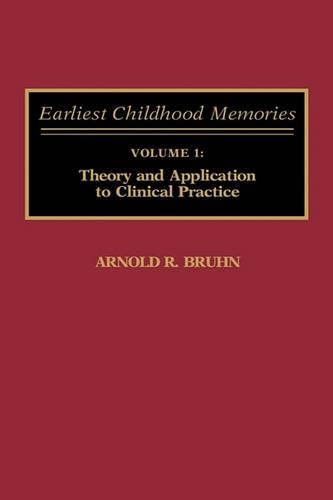
Earliest Childhood Memories: Volume 1: Theory and Application to Clinical Practice
(Hardback)
Publishing Details
Earliest Childhood Memories: Volume 1: Theory and Application to Clinical Practice
By (Author) Arnold Bruhn
Bloomsbury Publishing PLC
Praeger Publishers Inc
26th November 1990
United States
Classifications
Tertiary Education
Non Fiction
153.12
Physical Properties
Hardback
192
Width 156mm, Height 235mm
510g
Description
How is a sense of self formed from memory It is difficult to conceptualize a psychology of the self without memory serving as the foundation. Earliest Childhood Memories provides a structure and a theory by which this question can be addressed. Cognitive-Perceptual Theory is the only personality theory grounded on autobiographical memory. In addition, Cognitive-Perceptual Theory addresses how personal growth and personality affect memory organization. When a personality change occurs, early memories change in a parallel manner to reflect the current world view (realign). The Early Memories Procedure (EMP), the first procedure to assess autobiographical memory, consists of five spontaneous early memories, a particularly clear or important memory (lifetime), fifteen directed memories of various types, several rating scales, and open-ended questions. The procedure assesses all major clinically relevant areas of autobiographical memory. The first non-edited book on early memories addressed to professionals, this volume will be of interest to analysts, clinical psychologists, psychiatrists, social workers, school psychologists, and counselors.
Author Bio
ARNOLD R. BRUHN is a Clinical Psychologist in private practice who received his doctorate from Duke University. He developed and published the Early Memories Procedure (EMP).
